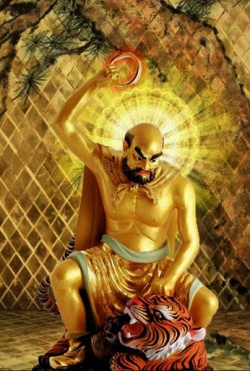Pope John Paul II and His Views on Buddhism
While it is true that Buddhism and Christianity have many principles that are similar to each other, it is also a fact that the two as religion are very separate. This separation was highlighted by Pope John Paul II who, on the one hand, respected Buddhism for all its peaceful and harmonious ways, on the other hand he found it to be a more or, less, atheistic in nature, therefore, difficult to follow. His comment on Buddhism being ‘in large measure an atheistic system’ caught the attention of the media and also criticism from many others.
‘Buddhism’ does not believe in the existence of any ‘God’ or, deity in physical form. It also does not believe in idol worship or, devoting oneself to the sculptures in temples or, other Holy buildings. When people started worshipping Lord Buddha when he was alive, thinking that he was the incarnation of some God or, the other, he said to the masses that he needs no worship as He is no God. As far as the Roman Catholic Church is concerned, their faith is based on Christ, the Son of God and His teachings. The Pope being a firm believer of Christianity could not accept the non-existence of God as the Supreme Being. Under such circumstances, the views of the ex sovereign of the Vatican on Buddhism was quite understandable.
There are many areas in which Christianity and Buddhism fall out. Firstly, the latter does not believe in ‘divinity’ per se, as opposed to the former. According to Christianity, after death of the mortal body, the soul rises to meet with the Ultimate Being or, God. And this is what even Pope John Paul II based his belief on; you serve His will on earth and which when completed, you merge with the Holy Spirit. In case of Buddhism, since there is no ‘Supreme Being’ as such, they believe in the achieving ‘Nirvana’ or, the ultimate detachment (or, a state of complete nothingness). This again was something hard for the Pope to Digest.
One cannot say that the Pope opposed Buddhism or, he detested its philosophy, but one can definitely say that he had very less to do or, even try to understand a faith that was based on ‘no God’. Some critics of the ex Supreme Pontiff of the Roman Catholic Church had expressed very different opinion about Buddhism. They said that there are many sects of this religion and each are based on certain principles of the root faith. Some say that Lord Buddha was the teacher of both the Gods and the men (which shows that the ‘God’ factor was present in this religion), while others comment that Lord Buddha himself expressed that there is some ‘uncreated force’ without which nothing would have existed. Whatever be the explanations, it could do almost nothing to convince the Pope and did not manage to get Buddhism close to Christian beliefs.
Pope John Paul II also showed his concern about how the west was unquestionably adopting the culture of the East without even knowing and understanding the culture they were born into. In the Pope’s own words,”what unites is much greater than what separates us”, gives hope to the relation of Buddhism with Catholicism, and reflects the conviction of the Pope in co existence of different faiths was much greater than the differences that separated them. The aura of the great pope can be still felt through his statues that are carved in bronze and captures every detail about him almost to perfection.
